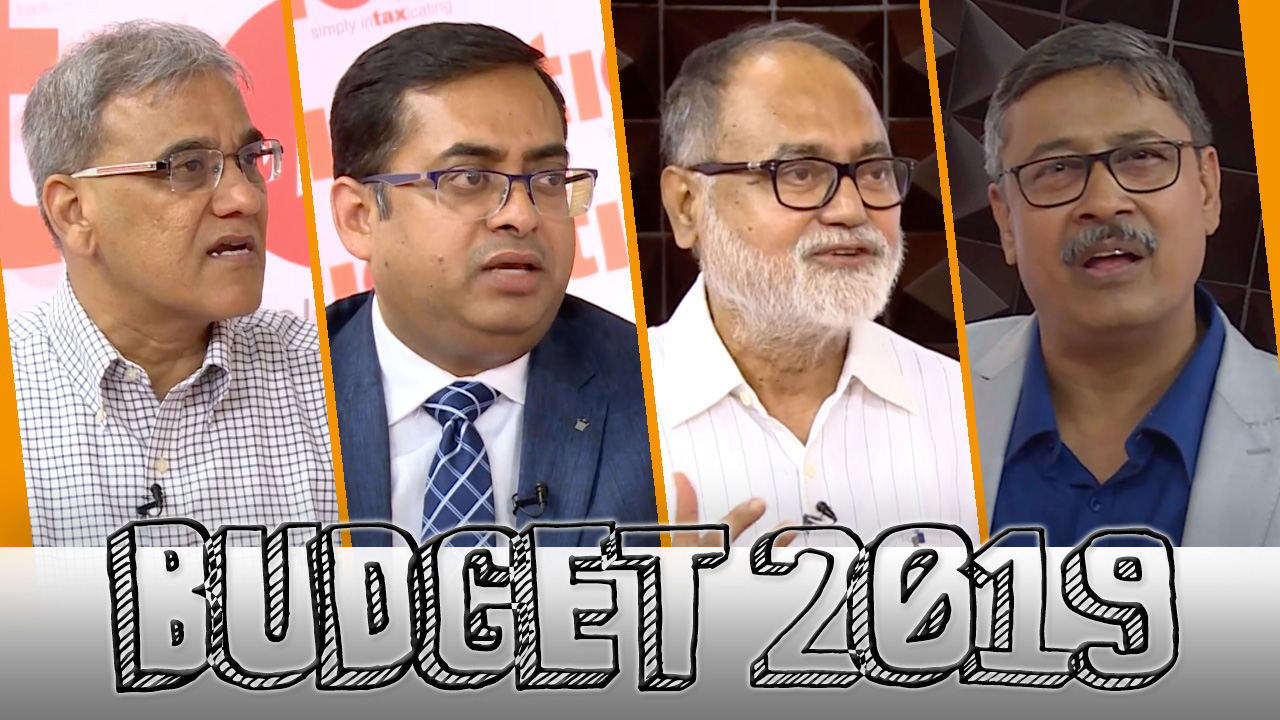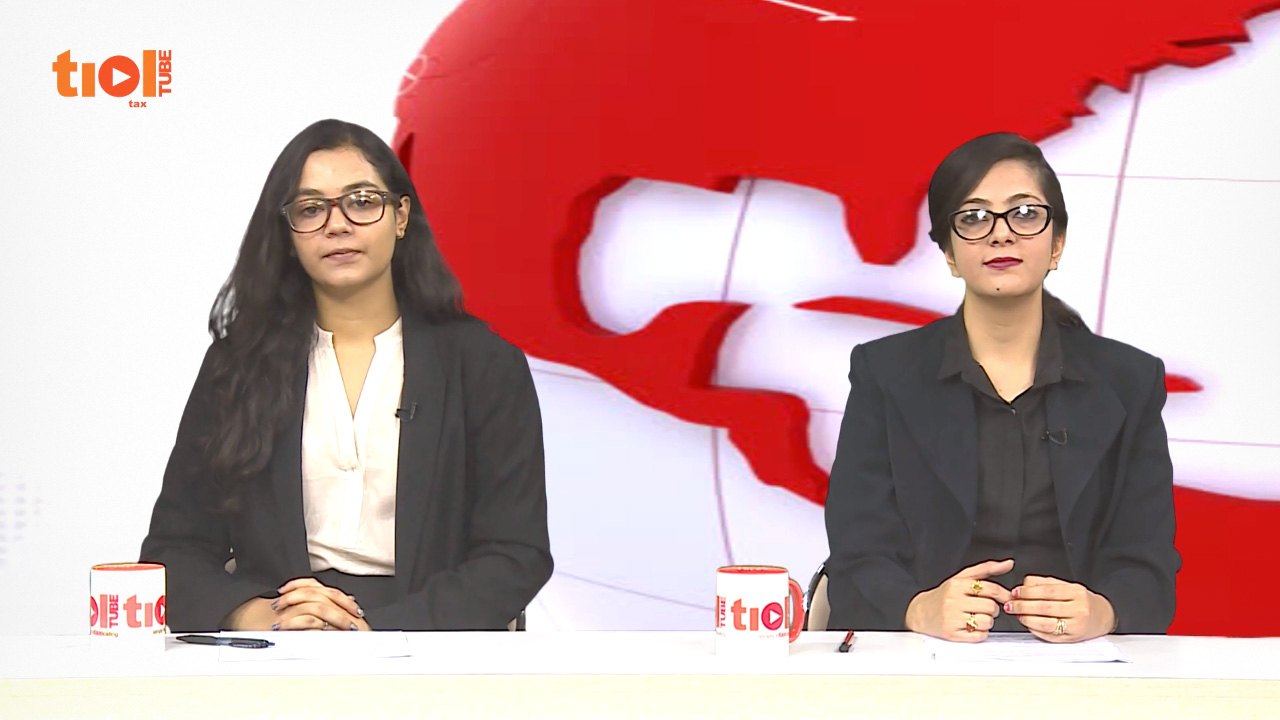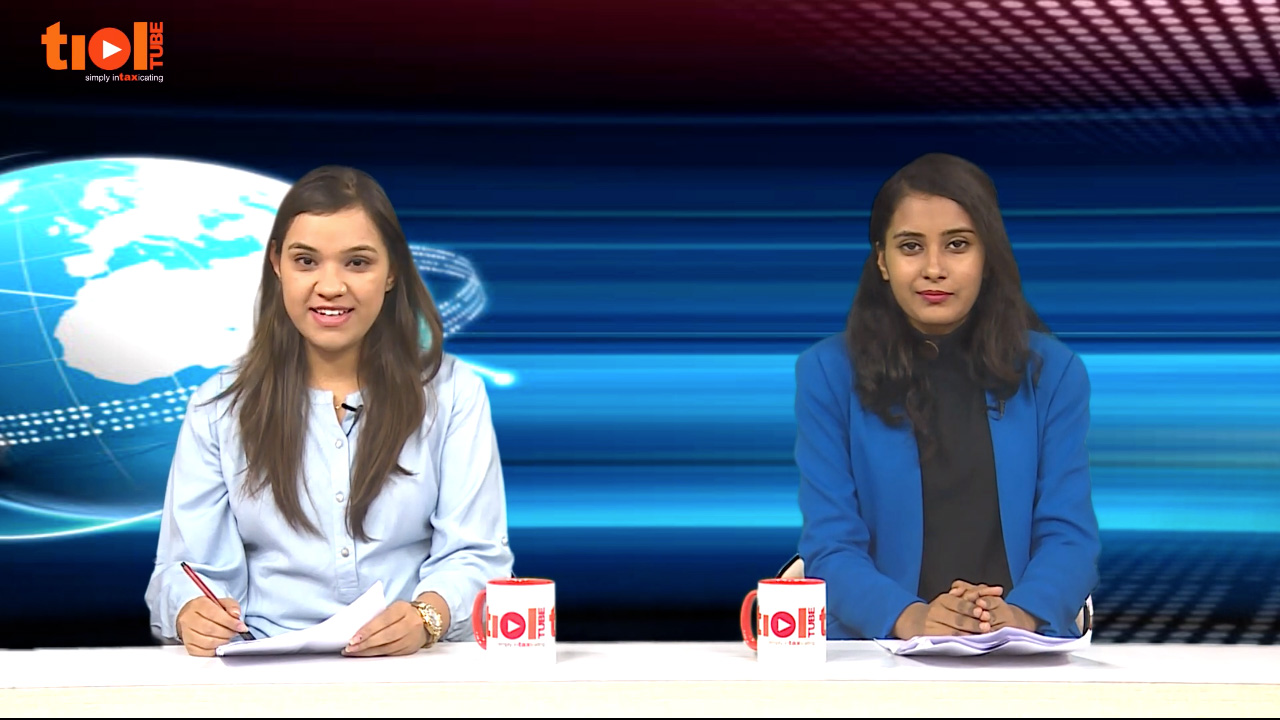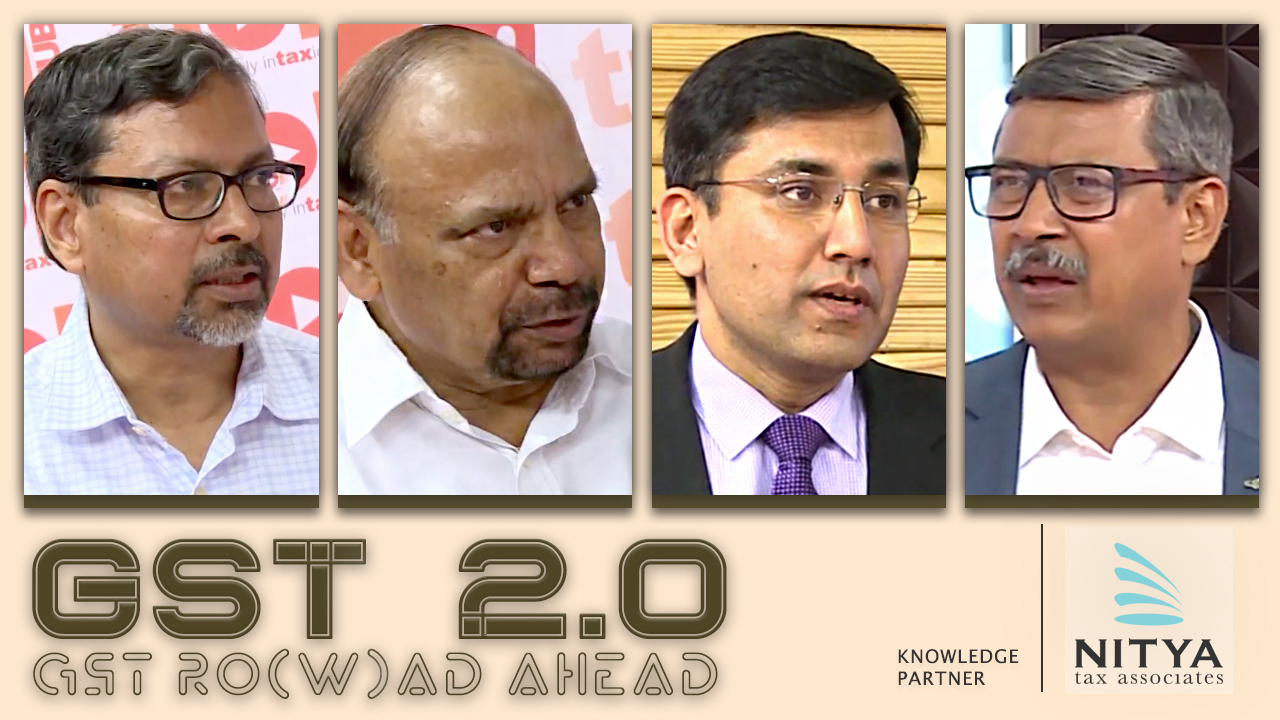|
SERVICE TAX
2019-TIOL-1757-CESTAT-ALL
Kush Constructions Vs CGST
ST - The assessee is registered with the Service Tax Department and regularly filed ST-3 returns - During the relevant period, duty demand was raised with equivalent penalty being imposed - Hence the present appeal.
Held - It is seen that the Revenue compared the figures reflected in ST-3 returns and those reflected in Form 26AS filed as per the Income Tax Act 1961 & observed some differences - The Revenue raised the duty demand without examining the reasons behind such differences - In such circumstances, the demand is untenable, more so without determining whether such difference is on account of any exemption or abatement availed by the assessee - Hence the SCN proposing such demands and the O-i-O confirming them are unsustainable: CESTAT
- Assessee's appeal allowed: ALLAHABAD CESTAT
2019-TIOL-1756-CESTAT-HYD
Mentor Graphics India Pvt Ltd Vs CC
ST - The assessee is engaged in providing Information Technology Software Services - However, they have been exporting 100% of their services and claiming refund of CENVAT credit under Rule 5 of CCR, 2004 - The two issues to be decided are; whether provision of output services are necessary for entitlement of CENVAT credit under CCR, 2004 and whether there is sufficient evidence to show that the output services were rendered by assessee from the seven new premises during the relevant period - As far as the first question is concerned, Rule 3 of CCR, 2004 is the only basis for anyone taking CENVAT credit - The provision of output services is an essential requirement for entitlement to CENVAT credit under Rule 3 - Coming to the second issue, the assessee vociferously asserted that they had indeed rendered output services from these seven premises - The rent agreement proved that these premises were rented by them but cannot prove or disprove whether any output services were provided from these premises - The attendance register may indicate that people were going to these offices and thereby implying that output services may have been rendered from these premises - However, copies of attendance registers produced do not indicate any address - There are three types of locations in this statement namely Hyderabad-STPI, Noida- STPI and other Non-STPI locations - Merely based on the assertions of assessee, it found impossible to come to any conclusion that the statement given by assessee established that the services from these seven premises - The invoices submitted by assessee do not throw any light as the invoices were not raised from any of these seven locations but were raised either from Hyderabad or from their Noida Development Centre - There is not even a casual remark or mention in any of these invoices that the services were rendered from any of the seven disputed premises - In the absence of any evidence whatsoever, Tribunal is unable to come to a conclusion with these invoices that output services were rendered from any of the seven disputed premises - The last document that the assessee seeks to rely upon is the Registration certificate with the State Government for payment of professional tax - Assessee has failed to provide even a shred of evidence to show that output services were rendered from these seven premises - Tribunal have no option but to hold that the assessee has failed to demonstrate that they have rendered output services from these seven premises - Therefore, the invoice of input services used in these premises cannot be used to avail CENVAT credit under Rule 3 of CCR, 2004 - It was incumbent upon assessee to ensure that they take credit as per the rules and not in violation of them - The SCN demanding the recovery of CENVAT credit along with interest invoking extended period of limitation and proposing imposition of penalty under Section 78 was correctly issued - Two grounds raised in SCN which were not sustainable were already dropped by First Appellate Authority whose impugned order is extremely fair and well balanced and requires no interference: CESTAT
- Appeal rejected: HYDERABAD CESTAT
CENTRAL EXCISE
2019-TIOL-1273-HC-MAD-CX
Carenow Medical Pvt Ltd Vs CGST & CE
CX - The petitioner manufactures goods which are known as 'Eco Bath Wipes' - It is submitted that this is essentially a hospital product, which is used for patients, who have difficulty in going through regular bathing exercise - Be that as it may, the central theme of controversy is classification of this product under CEA, 1944 - The pivotal and sheet anchor submission of writ petitioner in assailing the impugned SCN is that, the same has been issued without conducting retest - To buttress this submission, petitioner relied on certain extracts from Basic Excise Manual - In response to the ground on which challenge to the impugned SCN is directed, Central Government adverting to the counter affidavit submitted that Basic Excise Manual is only a guideline with regard to the procedure and the writ petitioner cannot insist that it should be mandatorily followed - This question is left open in the light of the trajectory, which the instant writ petition took today - The trajectory is set out infra - It is also submitted that the request for retest which has been made by writ petitioner, which has been sent to the jurisdictional Superintendent will be forwarded to jurisdictional Assistant Commissioner of Central Excise and a retest will be conducted - Writ petitioner also, on instructions, undertakes to pay the prescribed fee forthwith - Besides paying prescribed fee all other attendant requirements which are necessary for retest shall be adhered to by the writ petitioner - A copy of the retest report will be furnished to the writ petitioner, as expeditiously as possible and the writ petitioner shall thereafter send his reply to the impugned SCN: HC
- Writ petition disposed of: MADRAS HIGH COURT
2019-TIOL-1758-CESTAT-DEL
Box Corugators And Offset Printers Vs CGST, CE & CC
CX - The assessee carried out own manufacturing activity and activity of job work by printing 'duplex board and kraft paper' for various manufacturers of mono carton boxes/ corrugated boxes, availing SSI exemption under Notfn 08/2003 and also the benefit of Notfn 214/86-CE - Whether the assessee, a manufacturer of articles of paper and paper boards and other products of printing industry will fall under Chapter 48 or 49 of First Schedule to CETA, 1985 - The items in dispute being registers, answer sheets, certificates, writing pads, books, receipts, school diaries and school prospectus are all printed with name and logo of particular organisations - Accordingly by virtue of Chapter Note 12 to Chapter 48, these items will fall in Chapter 49 being goods of printing industry - Not a single RUD, is in form of stationary which is meant for general use - Assessee is not liable to excise duty as the items in dispute printed by them fall under Chapter 49 and the tax rate under CETH Chapter 49 is nil - Accordingly, the impugned order is set aside: CESTAT
- Appeal allowed: DELHI CESTAT
CUSTOMS
NOTIFICATION
cnt45_2019
CBIC issues exchange rates for exports and imports
CASE LAW
2019-TIOL-1755-CESTAT-MUM
Global Enterprises Vs CC
Cus - Assessee is aggrieved by confiscation and the attendant condition imposed by adjudicating authority for exercise of option to redeem the confiscated goods that was upheld in O-I-A on their challenge to the application of norms prescribed by BIS for 'electric irons' to the import of 'parts of electric iron' by them - The case of Revenue is that the assessee imported 'Euroline' brand of 'electric iron', comprising the main component and certain other parts, excluding 'power supply' and 'base', in impugned transaction and the excluded parts were imported separately with intent to evade compliance with the norms of BIS - In re Sewpujanrai Indrasanarai Ltd , it was held that conditions that are impossible to comply with could not be attached to release of goods and that without proper examination of dutiability, the burden cannot devolve on noticee - It is admitted by assessee that the importer is not a manufacturer and would not, thereby, be liable for non-compliance with standards of BIS norms - Faith in post-importation monitorial safety value can, often, be misplaced - The goods in dispute in decision in re Oetiker India Pvt Ltd 2016-TIOL-2079-CESTAT-MUM also did have the privilege of obtaining exemption from the norms of BIS - No such exemption can be sought for goods now impugned - It was incumbent on assessee to obtain necessary certification before affecting the imports - No merit found in the submission of assessee that the goods are not liable to confiscation and that the prescription in, and requirement to, comply with the Foreign Trade Policy can be ignored - As imported goods, though required to be, are not compliant with the standards, they fail to overcome the bar of prohibition at the threshold - Hence the question of duty liability, differential or otherwise, will not arise - This is in conformity with the decision of Supreme Court in re Sewpujanrai Indrasanarai Ltd that requirement to discharge duty liability will have to be established before it can be demanded - However, failure to comply with norms prescribed by BIS would render the goods liable to confiscation - Such liability to confiscation does not necessarily have to be consummated by confiscation under section 111 of Customs Act, 1962 - There is a dangerous consequence to such confiscation - If the option of redemption is not offered, or even exercised, possession of confiscated goods vests with the Central Government which will have to bear the consequence of such possession with attendant cost to the exchequer - On the other hand, if the option of redemption is to be linked to re-export, it has been held that such non-financial conditions cannot be appended for release of goods - Therefore, while upholding the liability of the goods to confiscation, Tribunal set aside the confiscation - Consequently, the option to redeem becomes infructuous - The goods were imported for sale in India but were ordered to be re-exported - Penalty is an instrument of deterrence - Re-export is not without any financial consequence to the importer - That should be sufficient deterrent against such imports: CESTAT
- Appeal disposed of: MUMBAI CESTAT |
|









